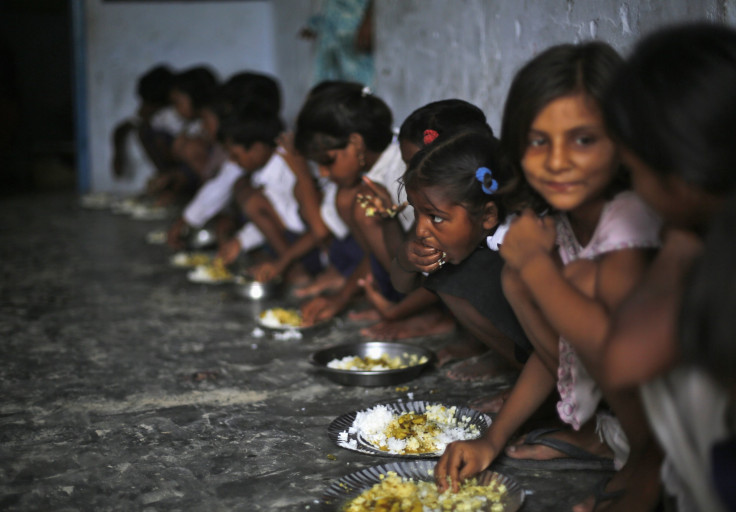UN's Post-2015 Agenda: Ending Poverty 'In All Its Forms And Dimensions'

The United Nations members from 193 nations endorsed a “historic” roadmap Sunday to tackle poverty and hunger, promote well-being and safeguard the environment over the next 15 years. The 30-page “agenda for sustainable development” is expected to guide policy and funding after the deadline for achieving the U.N.’s Millennium Development Goals (MDGs), adopted in 2000, expires by the end of this year.
“This is the People’s Agenda, a plan of action for ending poverty in all its dimensions, irreversibly, everywhere, and leaving no one behind,” U.N. Secretary-General Ban Ki-moon said, in a statement late Sunday. “The integrated, interlinked and indivisible 17 Sustainable Development Goals are the people’s goals and demonstrate the scale, universality and ambition of this new Agenda.”
The roadmap -- finalized after a week of heated negotiations at the U.N. headquarters in New York -- includes an ambitious target of “ending poverty in all its forms and dimensions” by 2030. Among its 17 goals are commitments to achieve gender equality, end hunger, promote physical and mental health and well-being -- thereby extending life expectancy -- and take urgent action to combat climate change and its effects.
UN endorses historic & transformative new 2030 agenda for sustainable development #post2015 pic.twitter.com/8cziVfF36G
— Gillian Bird (@AustraliaUN) August 2, 2015The sustainable development agenda document will be adopted at the U.N. summit in New York in September, ahead of a crucial climate summit in Paris in December.
“The Summit will chart a new era of sustainable development in which poverty will be eradicated, prosperity shared and the core drivers of climate change tackled,” Ban said in the statement. “Critically, the summit will also contribute to achieve a meaningful agreement in the COP21 in Paris in December.”
Funds for the 2015-2030 development goals will be provided by rich nations and developing countries as part of a deal finalized earlier this month in Ethiopia. Under the agreement, the donor nations agreed to set aside 0.7 percent of their gross national income for development aid.
The new Sustainable Development Goals (SDGs) aim to build on the progress made toward the implementation of the eight MDGs. While several nations have made significant strides -- insofar as poverty reduction, gender equality and access to health care are concerned -- the pace of progress has been uneven and lopsided across countries and regions.
According to a 2014 U.N. report, while the global target for reducing poverty by half was achieved five years ahead of schedule and the number of poor people -- those living on less than $1.25 a day -- had halved to 18 percent in 2010 from 36 percent of the population in 1990, the number of people living in extreme poverty in the sub-Saharan region increased to 414 million in 2010 from 290 million in 1990.
“The 17 Sustainable Development Goals and 169 targets which we are announcing today demonstrate the scale and ambition of this new universal Agenda. They seek to build on the Millennium Development Goals and complete what these did not achieve,” the draft text of the SDGs stated. “We pledge that no one will be left behind.”
© Copyright IBTimes 2024. All rights reserved.






















